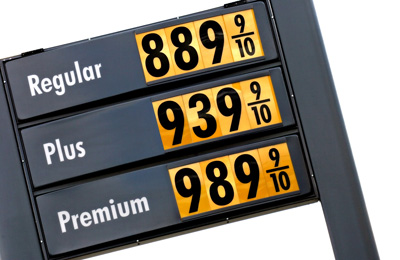
The 50 per cent price fall of oil since June is extreme.
The oil price is just plain wrong
WASHINGTON, January 7, 2015
By Edward Hadas
Edward Hadas is a Reuters analyst. Any opinions expressed here are the author's own.
The oil price is still too high, often too low and much too volatile. In other words, this is a market that doesn’t work well for anyone.
The excessive volatility is glaringly obvious. The 50 per cent price fall since June is extreme, but the market is only occasionally calm. Since 2000 the daily price has been on average 18 per cent higher or lower than six months earlier.
Such variation is uncalled for, especially given the fairly modest shifts in demand. Since 1990, the annual change has never been higher than 3 per cent. On the other side, the average cost of supply moves very slowly. Only modest adjustments in inventory and production rates are required to keep the price stable, as the market showed from mid-2011 to mid-2014.
The sharp shifts are as harmful as they are unnecessary. The world can handle any fairly stable price but rapid dramatic changes turn good investments bad. For example, if the oil price stays below $60 a barrel, much of the money spent on developing US shale oil will have been wasted. Conversely, the sharp rise in the mid-2000s devalued energy-inefficient investments which made good sense when oil was cheap.
Of course, the actual price matters. The behaviour of producers of both oil and rival sources of energy should change along with the cost of crude. So should the spending patterns of industrial and household customers. In a world of cheap crude, high-cost oil wells remain untouched and gas guzzlers are economical. When oil is costly, electric cars look better and deep sea drilling makes sense.
The overall global economy gains from having oil as cheap as possible. Anything else is a waste of resources. From that perspective, the current price is still far too high. The production of unnecessarily expensive oil wastes skilled labour and sophisticated equipment. Oil-importing nations end up paying more than they need to for crude. The financial world is troubled by the cross-border cash flow. Exporters gain cash, but high oil revenue often leads to poor governments and weak non-oil economies.
The price could be much lower if more production came from the most efficient fields. No one really knows how much lower, because Saudi Arabia and some other producers with ultra-low cost unused resources have decided not to exploit or explore them aggressively. Still, there is no good reason to think that more than $30 a barrel is needed. That was the annual average in the 1990s, adjusted for inflation, following the calculations of the US Energy Information Administration.
The price for producers is one thing; the cost for consumers is something else. There are good reasons to charge far more than the cost of production. Oil is a non-renewable resource which pollutes as it is used up, and dependency on imports, however cheap, brings political risk.
The correct price for users should be just low enough to keep cars on the road but high enough to restrain usage and to encourage the development of currently more expensive but ultimately more attractive alternative sources of energy. There is no way to calculate the precise optimal price, but the policies in Europe and Japan – taxes account for about 60 per cent of the petrol price at the pump – are on the right track.
The United States is an outlier with its low 15 per cent tax rate on gasoline. That is clearly too low to give strong incentives for conservation and investment in renewable alternatives. The US government does have many regulations to prod industry in desired directions, but higher taxes speak particularly clearly.
In an ideal world, the price of oil for producers would be lower and more stable than today, while the average price for consumers would be higher and more stable. The world will never be ideal, but oil pricing can be improved.
The best way to get an appropriate producer price is through a weak cartel. Producers should be just disciplined enough to keep the price stable, but too ambitious for market share to allow prices to rise enough to draw in frivolous investments and destructive overproduction. Happily, something like that may be on the way. The recent decision by Saudi Arabia to hold onto its market share, cost what it may in oil revenue, is a step in the right direction.
The best way to keep consumer prices at a sufficiently high level is to let the tax rate on oil vary along with the producers’ price for crude. The recent oil price drop provides an excellent opportunity. Consumers would hardly notice if the price of fuel did not fall, and most governments would welcome the additional tax take.
Unfortunately, governments are more anxious for short-term stimulus to consumer demand than for a sensible long-term approach to energy pricing. The opportunity will almost certainly be wasted. – Reuters







